12 Disciples
Strengths and Weaknesses
Our exploration of the “12 Disciples Strengths and Weaknesses” takes us on a journey to understand these revered figures in Christian history. Renowned and esteemed, the Twelve Disciples of Jesus Christ are more than just religious icons; they are ordinary men, individuals marked by extraordinary virtues and equally human shortcomings.
This blog post aims to closely examine each disciple’s unique narrative as bearers of the Gospel, leading lives that were fervently committed to service. Drawing from scriptural references, we seek to further appreciate their invaluable legacy, deepen our understanding of their individuality, and comprehend the profound faith placed in us by God. Let’s begin this enlightening voyage!
Then Jesus told them,
“This very night you will all fall away on account of me, for it is written:
‘I will strike the shepherd, and the sheep of the flock will be scattered.’
But after I have risen, I will go ahead of you into Galilee.”
Jesus
Peter replied
“Even if all fall away on account of you, I never will.”
Peter
To understand more of the 12 disciples’ strengths and weaknesses we turn to the Holy Book but while the Bible speaks extensively on the strengths of some of the protagonists among the Lord’s apostles, there is however scarcely enough information to draw conclusions on the strengths and weaknesses of all 12 messengers of God.
Thankfully, we have perused through archives of reliable data, and biblical books to put together some of the notable strengths and faults of the 12 disciples of Christ.
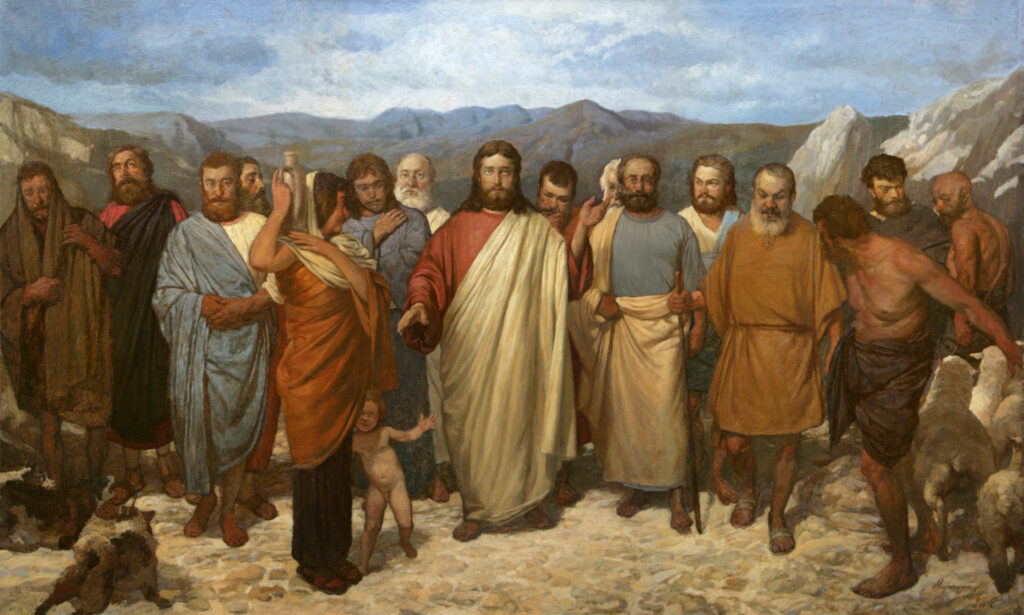
Christ with his disciples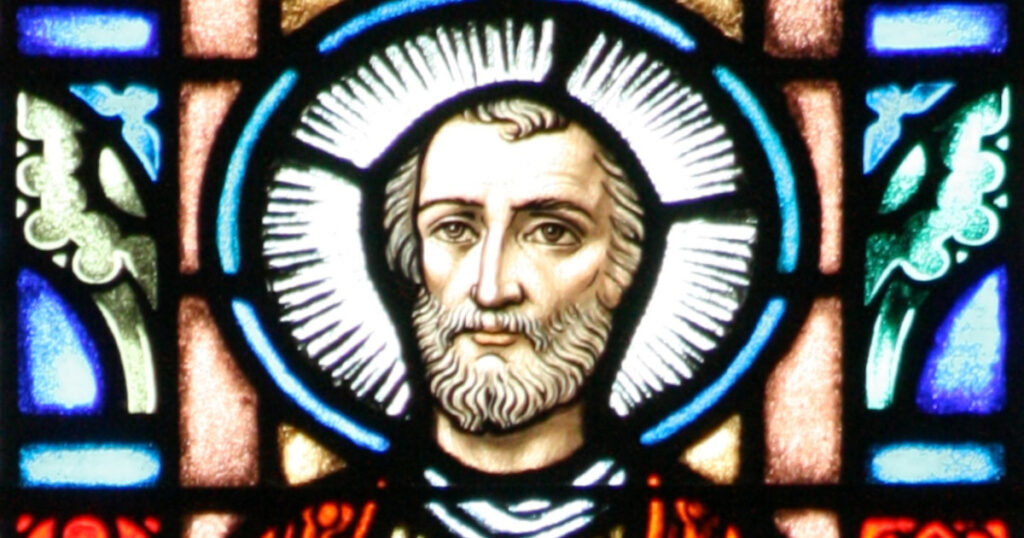
Saint PeterPeter
It is only understandable that apostles such as Saint Peter may have better expositions than most other apostles for obvious reasons.
Let’s start in the manner trodden by Christ. We begin with the first disciple of the Lord.
Peter, also known as Cephas or Simon Peter was an apostle of the early church and is widely regarded as the first pope of God’s church.
Strength of Peter
To a large extent, Peter is a bold charismatic leader among the apostles of Christ. His complete and utter belief in the Son of God projects higher levels of risk tolerance in comparison to most other apostles. His strength comes from a place of faith and a certain level of emotional attachment to the cause of the Son of God.
His Weaknesses
One of the weaknesses of Peter from a modern-day perspective is his seemingly talkative nature which is evident on the mount of transfiguration.
When the men appeared on the mount, Peter began
“Rabbi, it is good for us to be here. Let us put up three shelters—one for you, one for Moses, and one for Elijah.”
Peter - Mark 9:5; Mark 9:6
In this context, little to no attention is given to Peter as the voice of God emanates from the clouds saying
‘This is my Son, whom I love. Listen to him!’
Mark 9:7
This talkative nature of Peter becomes even more evident when Jesus is being led away from His disciples.
Then Jesus told them,
“This very night you will all fall away on account of me, for it is written: ‘I will strike the shepherd, and the sheep of the flock will be scattered.’ But after I have risen, I will go ahead of you into Galilee.”
Jesus
Peter replied,
“Even if all fall away on account of you, I never will.”
“I tell you the truth,”
Peter
Jesus answered,
“this very night before the rooster crows, you will disown me three times.”
Jesus
But Peter declared,
“Even if I have to die with you, I will never disown you.”
Peter
And all the other disciples said the same.
As is often the case with those who have talkative tendencies, Peter seemed to act before giving thought to his actions. A typical example would be his attempt to stop the arrest of Jesus by cutting the ear of a servant.

Introducing the “1 Page Bible With Visualized Art” by the mystic and yogi, Yograj Om.
In the vast tapestry of spiritual literature, where words often weave the fabric of faith, emerges a masterpiece that transcends the realm of mere words.
This isn’t just a book, but a portal to the sacred, a canvas where spirituality meets artistry, and where the ordinary transforms into the extraordinary.
1 Page Bible With Visualized Art – Author/Artist: Yograj Om
Book Type: Mystic Bible – Number of Pages: 102
File Type: PDF – File Size: 207Mb
Format: Digital E-book (Printable) – Delivery: Digital (Instant Download)
Uses: Personal Only – Benefits: Manifestation, Meditations
Book Style: Word of God – Instructions Included
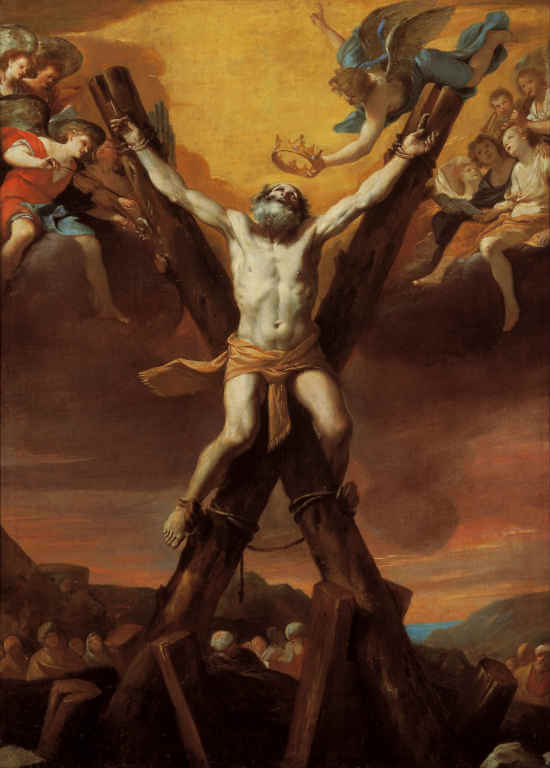
The Crucifixion of St AndrewAndrew
According to the scripture, Saint Andrew is the biological brother of Simon Peter. Also a fisherman, and originally a disciple of John the Baptist. (Mark 1:16; Mark 1:17; Mark 1:18).
The Byzantine church refers to him as
‘Protokletos’ which means ‘first called’.
Byzantine church
Unlike his brother Peter, not much is documented about the life of Andrew. Fewer quotes are also attributed to Andrew in comparison to Peter his brother.
Strength of Andrew
Andrew was a lover of truth, and he followed it wherever it led. It is important to note that he was a disciple of John the Baptist, before following Jesus. Based on biblical accounts, Andrew was the first disciple to identify Christ and called his brother Peter to meet Jesus (John 1:41).
His Weaknesses
Andrew’s exploits are not exactly as profound as that of his brother Peter in the Bible. Therefore, there isn’t exactly much information about him to conclude on his weaknesses.
However, it is important to note that like all other apostles of Christ, Andrew abandoned Jesus Christ during the trial and crucifixion.
Andrew seemed to be quite a simple man, with an objective mind, and this created room for yet another evident weakness recorded in the Bible.
When Jesus was preaching and needed to feed the congregation, He asked his disciples to go around to see what could be gotten.
“One of His disciples, Andrew, Simon Peter’s brother, said to Him,
‘There is a lad here who has five barley loaves and two fish, but what are these for so many people?’” (John 6:8; John 6:9)
Here, Andrew displays the hurdles of objectivity in the face of divinity. Even though he believed, he was a man who struggled to fully believe in the might of Christ the Son of God.
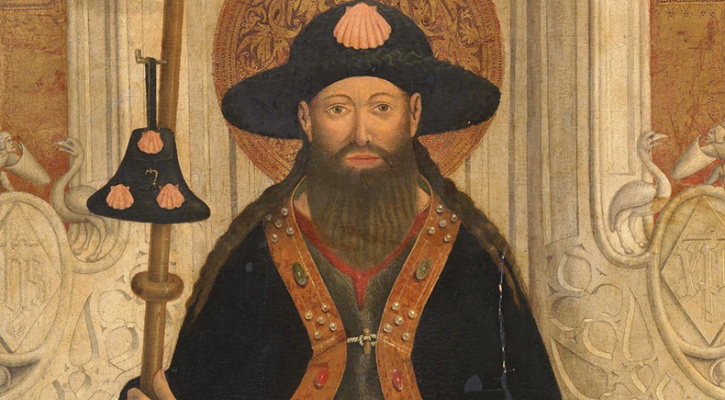
Saint James the ApostleJames the Greater
Saint James Son of Zebedee is one of the closest of Christ’s apostles.
He along with John and Peter remains the most prominent of all Christ’s disciples according to biblical recordings.
These three disciples were present at Gethsemane (Matthew 26:36; Matthew 26:37; Matthew 26:38; Matthew 26:39; Matthew 26:40; Matthew 26:41; Matthew 26:42; Matthew 26:43; Matthew 26:44; Matthew 26:45; Matthew 26:46.), the transfiguration (Matthew 17:1; Matthew 17:2; Matthew 17:3; Matthew 17:4; Matthew 17:5; Matthew 17:6; Matthew 17:7; Matthew 17:8), and the raising of the little girl (Luke 8:51)
Strengths of James the Greater
An extremely loyal disciple of Christ was James such that who was willing to take fanatical actions against those who would dare question the authority of his Christ. It is therefore little wonder why James and his brother were named “Boanerges” by Jesus. ‘James son of Zebedee and John the brother of James (to whom he gave the name Boanerges, that is, Sons of Thunder)’ (Mark 3:17)
His Weaknesses
James the Great had a fanatical manner of resolving issues and had to be called to order on a few occasions. For him, the gospel didn’t exactly apply to earthly things as he was often a physical representation of the Biblical phrase “the violent taketh it by force”.
Yet another side of James and his brother John who are both sons of Zebedee comes forth when they try to secure a place for themselves forever with the Lord.
“And James and John, the two sons of Zebedee, came up to Him, saying to Him,
‘Teacher, we want You to do for us whatever we ask of You.’
James and John
And He said to them,
‘What do you want Me to do for you?’
Jesus
And they said to Him,
‘Grant that we may sit in Your glory, one on Your right, and one on Your left.’
James and John
But Jesus said to them,
‘You do not know what you are asking for. Are you able to drink the cup that I drink, or to be baptized with the baptism with which I am baptized?’
Jesus
And they said to Him,
‘We are able.’
James and John
And Jesus said to them,
‘The cup that I drink you shall drink; and you shall be baptized with the baptism with which I am baptized. But to sit on My right or on My left, this is not Mine to give; but it is for those for whom it has been prepared.’”
Jesus - Mark 10:35; Mark 10:36; Mark 10:37; Mark 10:38; Mark 10:39; Mark 10:40
This action by James and his brother brought forth resentment from other disciples and suggests that James may have harbored selfish tendencies along with fanatism.

Saint John stained glassJohn
Saint John was the second son of Zebedee, a brother to James the Greater who happened to be the first martyr among the apostles.
It may seem that the sons of Zebedee were comparatively wealthy as they had servants.
Strength of John
Like his brother James, John had an unquenchable zeal to work in the vineyard of Christ. And among all the apostles of Jesus Christ, John is said to be the disciple Jesus loved the most (John 13:23; John 19:26; John 20:2; John 21:7; John 21:20).
His Weaknesses
But for the gift of the Holy Spirit, John could have easily become fanatical. A typical example of such tendencies rears its head just after the Transfiguration.
Upon seeing this cold welcome from the Samaritans, James and John tried to persuade Jesus to do something ruthless. “Lord,” they ask, “do you want us to tell fire to come down from heaven and consume them?” (Luke 9:54).
It is little wonder, that James and John were called the “Sons of Thunder” by Jesus Christ. Ironically, John would grow to become an apostle of love after the death and ascension of Christ.

Saint Philip the ApostlePhilip
Saint Philip seems to share certain similarities with Andrew as their Greek names suggest a Greek heritage. This made it even clearer as Philip acts as a spokesman for the Greeks at the Passover.
Philip saw himself as a leader and representative of potential Greek believers and often seemed to try to ask questions from a Greek perspective in line with his rather inquisitive nature.
“For indeed Jews ask for signs, and Greeks search for wisdom;”
1 Corinthians 1:22
Strength of Philip
Philip oozes an independent man who thinks for himself and is inquisitive about how the Lord’s message applies to the Greeks especially.
Philip is an early believer in the coming Christ, however, his practical manner of thought often causes him to make human, divine matters. He found Nathanael and told him about the Messiah.
“Now Philip was from Bethsaida, of the city of Andrew and Peter. Philip found Nathanael and said to him,
‘We have found Him of whom Moses in the Law and also the Prophets wrote, Jesus of Nazareth, the son of Joseph.’” (John 1:44; John 1:45).
His Weaknesses
Philip’s seemingly evident weakness was his deficiency in the knowledge of the things of God. It seems that he was quite aware of his shortcomings in this regard and this may explain why he thought it wise to consult Andrew when the Greeks sought to see Jesus.
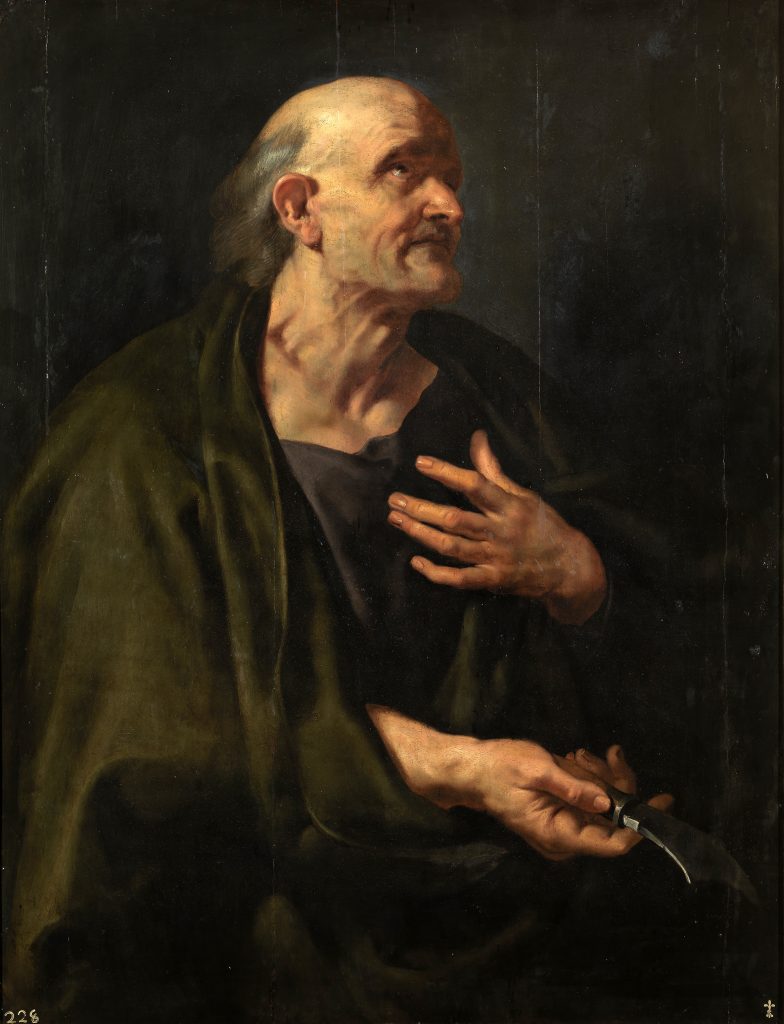
Saint BartholomewBartholomew
Very little is known about Saint Bartholomew biblically and otherwise. In fact, there are those who believe Nathanael and Bartholomew to be one and the same individual.
This may be attributed to the use of either Nathanael or Bartholomew along with similar characters in the gospels. For instance, the gospels according to Matthew, Mark, and Luke often mention Bartholomew and Philip in context (Luke 6:14; Matthew 10:3; Mark 3:18).
In the fourth gospel, however, Nathanael and Philip are mentioned with no mention of Bartholomew.
Strength of Bartholomew
Bartholomew is a man behind the scenes whose belief in God and His Son Jesus Christ is mostly personal. In today’s world, he would be one who would be difficult to identify as a man of God but for his character and manner of life.
His intentions towards the things of God are explicitly shown when Jesus says to him
‘Behold, an Israelite indeed, in whom is no guile!’ (John 1:47).
Jesus
His Weaknesses
While very little is written about the Apostle Bartholomew, one statement often comes to play. When Andrew who hails from the same city of Bethsaida as Bartholomew tells of the new Messiah, and his Galilean origin, Bartholomew is quick to express scornful disbelief saying
“Can any good thing come out of Nazareth?”
Bartholomew
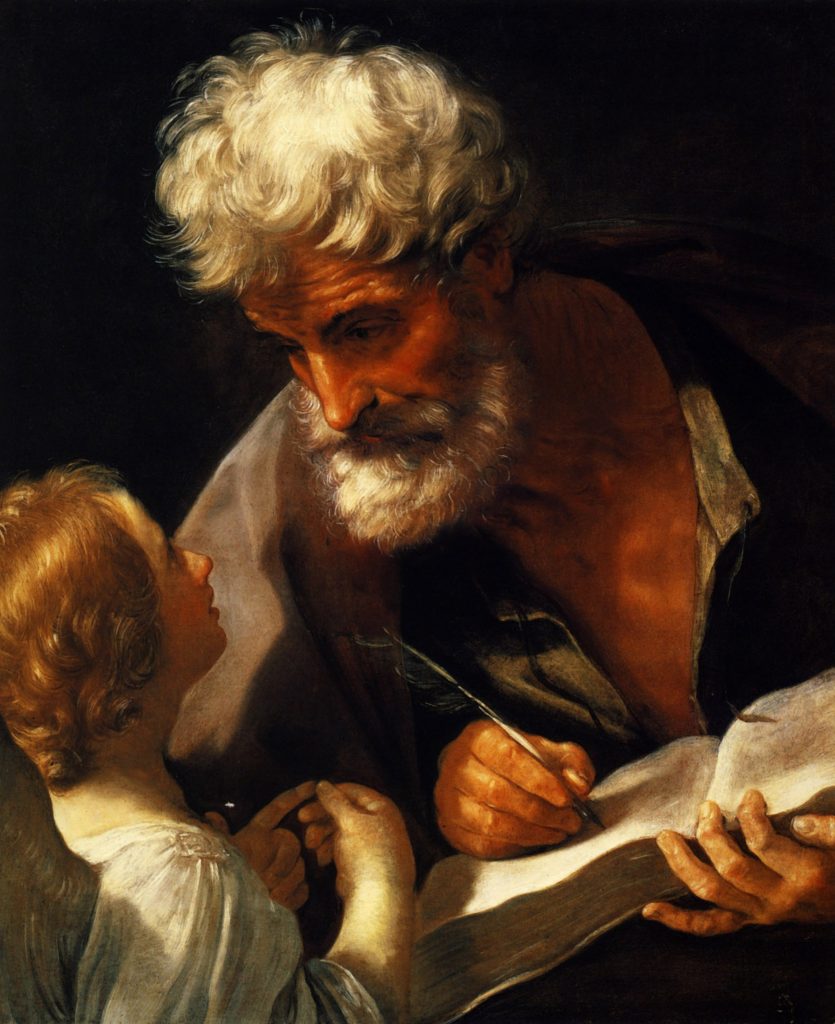
Saint MatthewMatthew
Saint Matthew, the tax collector is one of the prominent apostles of Christ. Matthew’s call to discipleship is frowned upon by the congregation, even some of the disciples.
His call serves as an indication of God’s willingness to accept us regardless of outward dispositions.
Calling Matthew a tax collector must have pricked the Jews as tax collectors had a reputation for being wicked men engaging in all manners of fraudulent activities and oppression.
Strength of Matthew
Matthew is a resolute individual as is the case with most people tasked with gathering taxes. His willingness to drop absolutely everything and follow Jesus Christ exhibits this trait in the best possible way.
His Weaknesses
Very little is spoken about the apostle Matthew from Biblical references. Apart from his call by Jesus Christ, he is not mentioned again throughout the New Testament.
Most generally agree that Matthew must have been a greedy man seeing that this was the norm within his occupational circles, however, nothing suggests this except for the fact that he was a tax collector.

Saint ThomasThomas
Saint Thomas remains one of the most interesting characters among the apostles, for he is popularly known for his pessimism after the resurrection of Christ.
However, this popularly touted part of Thomas does not do justice to the man that he was.
Strength of Thomas
Thomas contrary to his pessimistic tendencies is the only disciple who encouraged Jesus Christ on his intention to visit Bethany and heal Lazarus despite the growing dangers to Jesus’ life.
Didymus as he is also called says
“Let us also go; that we may die with him.”
Didymus
in opposition to the other disciples who would rather remain.
His Weaknesses
Thomas’s pessimism and lack of understanding seemed to be his weaknesses. For instance, his question to Jesus on the night before the Lord was crucified reads
“Lord, we do not know where You are going, how do we know the way?”(John 14:5).
Thomas
This shows his lack of understanding and pessimism as Jesus had already answered a similar question.
“Simon Peter said to Him,
‘Lord, where are You going?’
Simon Peter
Jesus answered,
‘Where I go, you cannot follow Me now; but you shall follow later.’”( John 13:36).
Jesus
His popular pessimist views may be seen here:
When therefore it was evening, on that day, the first day of the week, and when the doors were shut where the disciples were, for fear of the Jews, Jesus came and stood in their midst, and said to them,
‘Peace be with you.’
Jesus
And when He had said this, He showed them both His hands and His side. The disciples, therefore, rejoiced when they saw the Lord. Jesus, therefore, said to them again,
‘Peace be with you; as the Father has sent Me, I also send you.’
Jesus
And when He had said this, He breathed on them, and said to them,
‘Receive the Holy Spirit. If you forgive the sins of any, their sins have been forgiven them; if you retain the sins of any, they have been retained.’
Jesus
But Thomas, one of the twelve, called Didymus, was not with them when Jesus came. The other disciples, therefore, were saying to him,
‘We have seen the Lord!’
The other disciples
But he said to them,
‘Unless I shall see in His hands the imprint of the nails, and put my finger into the place of the nails, and put my hand into His side, I will not believe.’” (John 20:25)
Thomas

Kiss of JudasJudas Iscariot
Judas Iscariot is arguably the smartest of all the apostles of Christ, however, he is the only one who isn’t a Galilean.
His position as treasurer may be attributed to his wits.
Unfortunately, it seems his wits become the reason for his downfall.
Strength of Judas Iscariot
Judas is widely knowledgeable and intelligent. But that’s about it.
His Weaknesses
Evidently, Judas may not have been a true believer in Christ. And was there for whatever he could gain. It is little wonder why Jesus called him the son of Perdition (John 17:12).
An evident outlook on how Judas’ mind worked:
“Jesus, therefore, six days before the Passover, came to Bethany where Lazarus was, whom Jesus had raised from the dead. So they made Him a supper there, and Martha was serving, but Lazarus was one of those reclining at the table with Him.
Mary, therefore, took a pound of very costly perfume of pure nard, anointed the feet of Jesus, and wiped His feet with her hair; and the house was filled with the fragrance of the perfume.
But Judas Iscariot, one of His disciples, who was intending to betray Him, said,
Why was this perfume not sold for three hundred denarii, and given to poor people?
Judas Iscariot
Now he said this, not because he was concerned about the poor, but because he was a thief, and as he had the money box, he used to pilfer [steal a little bit at a time] what was put into it.” (John 12:1; John 12:2; John 12:3; John 12:4; John 12:5; John 12:6).
It is important to note that his love for money made him fall short of the glory of Christ, and allowed Satan a path through which to use him.

Saint James the LessJames, Son of Alphaeus
James the son of Alphaeus was regarded as Saint James the Less or Little which may have indicated a difference in age or height with James the son of Zebedee who was referred to as James the Great.
Strength of James the Less
James’ presence during the last supper is indicative of his relevance to the ministry of God’s word. It is also possible that he was the first to see Jesus after the resurrection. He’s widely regarded as a rather faithful apostle among all apostles.
His Weaknesses
Not much is known about James the less. It is however evident that he fled along with other disciples on the eve of Christ’s crucifixion.

Apostle SimonSimon the Zealot
There’s a bit of controversy as to who Saint Simon the Zealot was.
Some suggest that he was a member of a rebellious Jewish sect called Zealots, others claim that the title zealot may have been conferred just to acknowledge his zeal towards the things of Christ.
In other Bible translations, he is often referred to as Simon the Canaanite.
The Zealots were a sect of Jews that vehemently opposed the Roman governance of the Jews. In today’s terms, the Romans may have referred to them as terrorists, as they were often known to slip through crowds during festivities and slit the throats of targets with a Sicari (a short curved knife) and disappear.
Strength of Simon the Zealot
Simon the Zealot was resolute in these dealings. He took a step back from his past life and followed Jesus Christ till the very end.
His Weaknesses
As was the case with other disciples, Simon the Zealot abandoned Christ on the night before his crucifixion. He also seemed to lack leadership qualities but made up for it as a cult-like follower of whatever he believed in.

St Jude ThaddeusJudas Son of James
Judas, the son of James is also referred to as Saint Judas the Zealot.
Strength of Jude
Judas is an enthusiastically inquisitive fellow.
‘Lord, what then has happened that You are going to disclose Yourself to us, and not to the world?’
Jude
Jesus answered and said to him,
‘If anyone loves Me, he will keep My word; and My Father will love him, and We will come to him, and make Our abode with him.
He who does not love Me does not keep My words, and the word which you hear is not Mine, but the Father’s who sent Me.
Jesus
Judas the Zealot was a lover of Christ and his teachings.
These things I have spoken to you while abiding with you.’”
His Weakness
He like most disciples abandoned Christ on the eve of the crucifixion and went into hiding.
Conclusion
This article on the 12 disciples’ strengths and weaknesses takes a unique path towards displaying the humanity of the twelve apostles of Christ, and how these imperfections may have affected their relationship with the Son of God, and their belief in the coming of the Messiah.
It takes note of the gospels and other verifiable scholarly papers to prove that these apostles were indeed men of the flesh who struggled with common challenges as we do today.
Their encounter with Christ shows the pathway from a life of imperfection, displaying the faults of the 12 disciples through learning and complete faith and finally, belief in Jesus Christ.
Resources 12 Disciples Strengths and Weaknesses
https://tnk1250.wordpress.com/2014/08/19/five-flaws-of-the-disciples/
https://www.engr.colostate.edu/~echong/apologetics/denials.pdf
https://en.wikipedia.org/wiki/Saint_Peter
https://en.wikipedia.org/wiki/Pope
https://www.vatican.va/content/benedict-xvi/en/audiences/2006/documents/hf_ben-xvi_aud_20060614.html
https://theriverchurch.cc/devotions/archives/3468
https://en.wikipedia.org/wiki/Language_of_Jesus
https://study.com/academy/lesson/andrew-the-apostle-biography-facts-death.html
http://biblesaints.blogspot.com/2011/06/saint-peter-talkative-fisherman-apostle.html